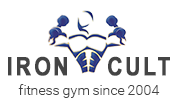Being too Regimented and Being Totally Unstructured
I strongly believe that a beginner who wants to perform physical exercise has to have a concrete plan. Doing so, the chances of him wandering aimlessly isn’t happening; thereby, the much needed effort to bring in some positive change in the body is not wasted. Moreover, a beginner will mostly seek for constant reassurance. So, it’s safe for him to go through a basic pattern.
However, things change when a fitness aficionado dwells deeper into the realm of physical performance. They might come up with a preconceived plan about the day’s plan. Nonetheless, instinct would tell them that they need to address a different component of physicality, which might be out of the blue. You never mind, for you inherently and honestly feel that you need execute a specific drill for you feel better. Honesty—can be tricky. You need to, honestly, reassess your weak points and take action to deal with them. However, we seldom work on our weak points. All we do is build our strengths and feed the ego. Thus, we exaggerate our strengths rather than addressing our weaknesses.
I also believe that after you pass the beginners phase, rather than repeating to the same plan again you should try discovering different components of fitness. You need to embrace physicality in its entirety; rather, than pigeonhole it. Moreover, learning new movements is immensely enriching and it is one of the keys to stay happy. It is enriching because it leads and extends you to a new direction.
Nevertheless, you might still get lost in the grand idea. Al Kavado in his book titled We’re Working Out! A Zen Approach To Everyday Fitness says, “Its best to aim for the middle ground between being too regimented and being totally unstructured.” So, when Kavado says that you also need to be regimented it invariably means that you need get the basics right. Performing the basics is boring, but you still need to do it. They are foundational: for example, the squat.
